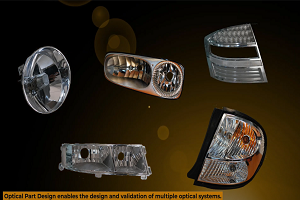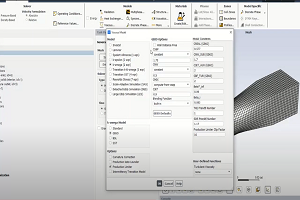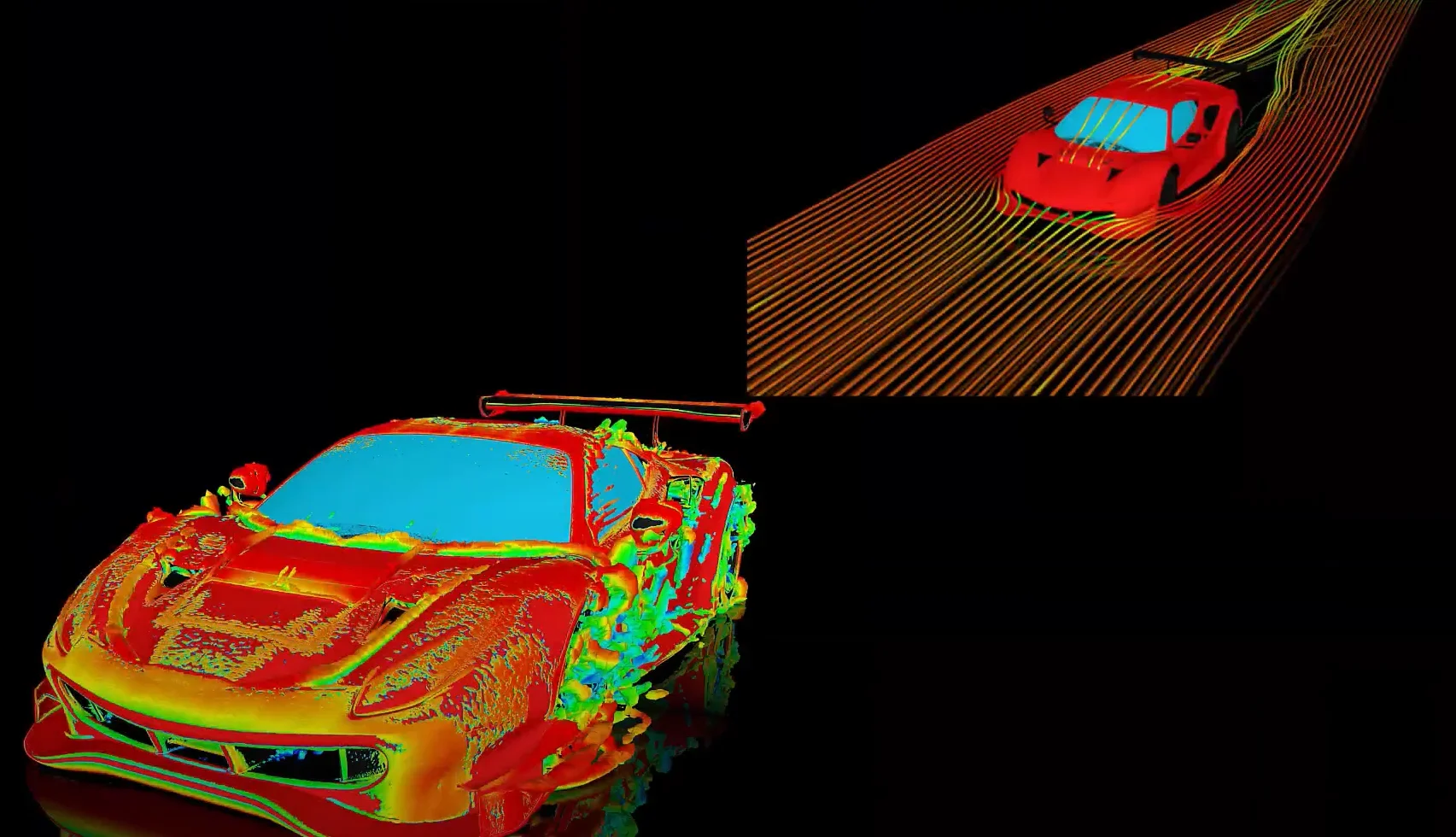Tagged: ls-dyna, LS-DYNA Suite, lsdyna, structural-mechanics
-
-
March 17, 2023 at 8:59 am
 FAQParticipant
FAQParticipant1) For polymers it can be difficult to separate the elastic strain from the plastic strain (as you would have to do to prepare the input curve for MAT_024 from a tensile test result) because the stress-vs-total strain curve at high strain values can be steeper than the initial elastic modulus. In those cases, it is easier to input the stress-vs-total strain curve as with MAT_089. 2) MAT_089’s ability to have failure strain as a function of strain rate is useful for polymers, some of which become more brittle at high strain rates. 3) Unlike MAT_024, the hardening slope of MAT_089 can be larger than the initial modulus. The unloading/reloading stiffness of MAT_089 is equal to the maximum tangent stiffness attained before the unloading occurs. On the other hand, MAT_024 unloads/reloads always with the initial modulus, therefore, the hardening slope in the MAT_024 should not exceed the initial modulus. 4) In years gone by, before *MAT_ADD_EROSION was added to the code, MAT_089’s basing failure on the maximum principal strain (rather than plastic strain) would have been a fourth point on the list. Additional information can be found in the remarks for *MAT_PLASTICITY_POLYMER in the LS-DYNA Manual Volume II.
-


Introducing Ansys Electronics Desktop on Ansys Cloud
The Watch & Learn video article provides an overview of cloud computing from Electronics Desktop and details the product licenses and subscriptions to ANSYS Cloud Service that are...

How to Create a Reflector for a Center High-Mounted Stop Lamp (CHMSL)
This video article demonstrates how to create a reflector for a center high-mounted stop lamp. Optical Part design in Ansys SPEOS enables the design and validation of multiple...

Introducing the GEKO Turbulence Model in Ansys Fluent
The GEKO (GEneralized K-Omega) turbulence model offers a flexible, robust, general-purpose approach to RANS turbulence modeling. Introducing 2 videos: Part 1 provides background information on the model and a...

Postprocessing on Ansys EnSight
This video demonstrates exporting data from Fluent in EnSight Case Gold format, and it reviews the basic postprocessing capabilities of EnSight.

- How do I request ANSYS Mechanical to use more number of cores for solution?
- Contact Definitions in ANSYS Workbench Mechanical
- How to restore the corrupted project in ANSYS Workbench?
- How to deal with “”Problem terminated — energy error too large””?”
- How can I change the background color, font size settings of the avi animation exported from Mechanical? How can I improve the resolution of the video?
- What is the reason for this error message when mesher fails – “A software execution error occurred inside the mesher. The process suffered an unhandled exception or ran out of usable memory.”?
- How to transfer a material model(s) from one Analysis system to another within Workbench?
- There is a unit systems mismatch between the environments involved in the solution.
- How to change color for each body in Mechanical?
- How to obtain force reaction in a section ?

© 2026 Copyright ANSYS, Inc. All rights reserved.

